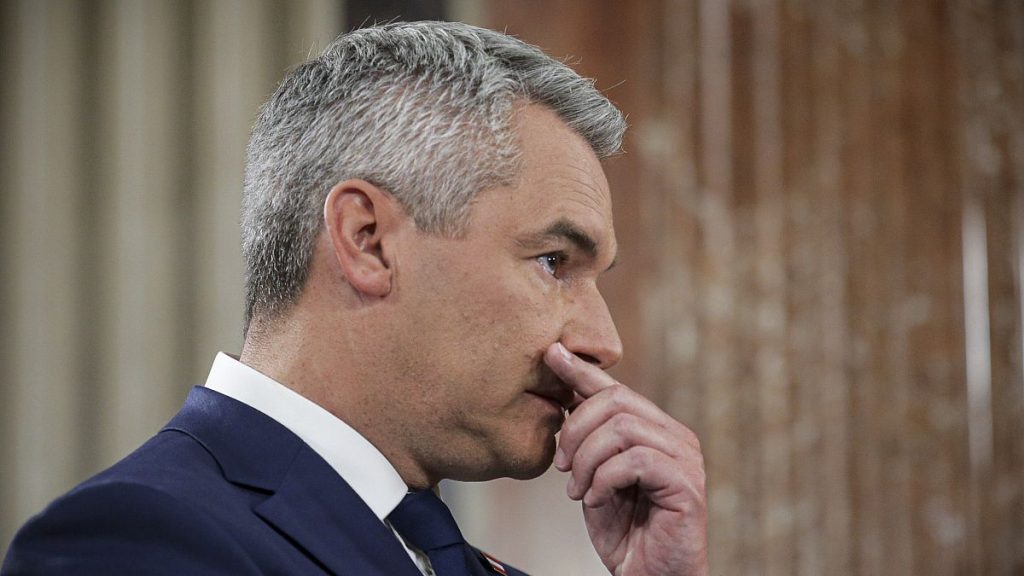Coalition talks in Austria have hit a roadblock as the main parties, the People’s Party (ÖVP) and the Social Democrats (SPÖ), have refused to work with the leader of the right-wing Freedom Party (FPÖ), Herbert Kickl. Despite Kickl’s party winning the most votes in September’s election, the other parties have been unable to form a coalition with him. Austrian Chancellor Karl Nehammer has announced his resignation following failed negotiations to form a new government, with the People’s Party citing an inability to reach agreement on key issues as the reason for halting talks.
The Liberal Neos party’s withdrawal from coalition discussions has further complicated the situation, leaving the ÖVP and SPÖ scrambling to find a viable partner to form a three-party ruling coalition. Nehammer expressed frustration with the “destructive forces” in the Social Democrats and their unwillingness to compromise on economic competitiveness and tax policies. Social Democrat leader Andreas Babler expressed regret over the breakdown in talks and urged the People’s Party not to abandon negotiations, particularly in addressing the record deficit left by the previous government.
The three main party leaders have been accused of wasting months on a “Kickl prevention strategy” instead of focusing on forming a stable government. Herbert Kickl criticized the lack of progress and called for a more speedy and decisive approach to governing. The prospect of new elections looms as the most likely outcome, with the right-wing FPÖ anticipating increased support based on recent polls. Austria’s next government will be faced with the daunting task of saving billions of euros, addressing the country’s recession, rising unemployment, and budget deficit exceeding the EU’s limit.
With the failure of coalition talks and Nehammer’s impending resignation, Austria is in a state of political uncertainty. The inability of the main parties to come to an agreement has left the country without a viable governing coalition, prompting fears of further instability and chaotic governance. The differing views on economic policies, tax reforms, and deficit reduction have proved to be insurmountable obstacles in forming a coalition government. As new elections become a likely scenario, the various political parties will need to regroup and potentially seek alternative strategies to address the challenges facing Austria’s economy and governance.
The ongoing political crisis in Austria highlights the deep divisions among the main parties and the challenges of forming a cohesive government in the wake of a right-wing surge in the September elections. The reluctance to work with the FPÖ leader, Herbert Kickl, reflects a broader ideological divide within Austrian politics and raises questions about the future direction of the country. The need for stability and effective governance is paramount as Austria grapples with economic woes and uncertainty on the political front. The upcoming elections will be crucial in determining the path forward for Austria and the role of various parties in shaping the nation’s future.


